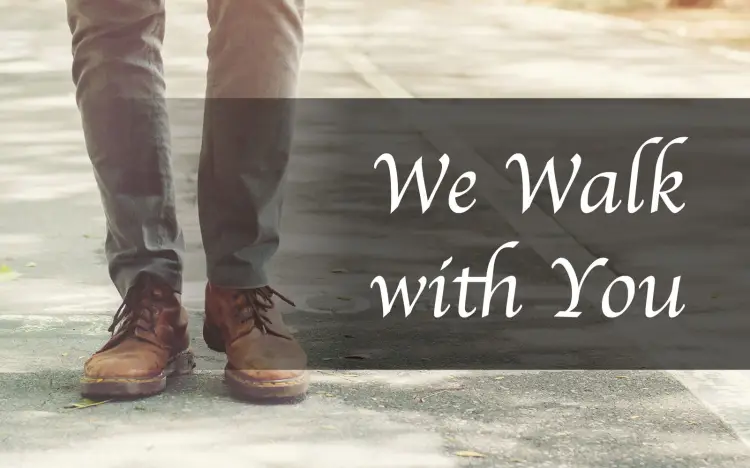
About VCVS
We walk with you.
We fulfill the promise of:
- Treating co-victims with respect
- Identifying and meeting their needs
- Helping them seek justice
Violent Crimes Victim Services History
 Violent Crime Victim Services was born out of the violent death of one of the daughters of Mr. Lew Cox, the organization's Founder and former Executive Director.
Violent Crime Victim Services was born out of the violent death of one of the daughters of Mr. Lew Cox, the organization's Founder and former Executive Director.
After 33 years of outstanding leadership, Lew has retired and moved on to the next chapter of his life's work. The Board of Directors, Staff and countless families wish to thank Lew for his dedication & service to the homicide bereaved in our community.
The Board of Directors is pleased to welcome Juli Garcia as the new Executive Director, Juli has worked with Lew for 22 years and she is dedicated to ensuring that the organization stays strong to its core values, mission, and program services.
Continuing the work that Lew has done for the past three decades.
Our Advocates recognize the significance of the loss after a loved one is murdered, ensuring that co-victims of homicide receive support and assistance in the aftermath of the crime - that they are treated with compassion and dignity - assisting them to identify and meet their most essential needs related to their physical, emotional and spiritual losses - while providing them with information about their statutory and constitutional rights, as well as advocating to help them implement those rights, the right to be present at all proceedings related to their loved one's case and to provide them with information and assistance with crime victims compensation. Violent Crime Victim Services is committed to ensuring that no one has to endure the murder of a loved one alone.
The necessity for homicide victim support programs is primarily due to the high volume of violent crime. Nationwide, homicide is the third highest cause of death of individuals under age 40. Over 25% of all homicides in the U.S. are related to DOMESTIC VIOLENCE. Grief associated with a homicidal death can create a prolonged critical emotional danger in surviving family members and friends. A disproportionate number of children, adolescents, and young adults must adjust to this tragedy every year.
How can we fulfill the needs of this population of people? We cannot do it alone. In a nation where nearly everyone knows someone who has been victimized, or they themselves have been touched by crime, we must pursue avenues that engage and involve everyone across the nation - in communities large and small, of every culture and race, religion, and ethnicity - to join in our efforts. When a violent crime hurts one person, its effects touch us all.
The dedicated work of our Advocates and Volunteers at Violent Crime Victim Services have helped touch the lives of countless victims over the years. Still, with all this effort, we realizes that we need to secure more resources to meet victims' increasing needs comprehensively and consistently. Violent Crime Victim Services does not cease its efforts to see that every co-victim of homicide receives all their rights and services necessary to aid in their recovery.
Services
INITIAL CONTACT: prosecutors, homicide detectives, counselors, hospitals, churches, and funeral homes make co-victims aware of victim services.
CRISIS INTERVENTION: A crisis intervention meeting is provided to family and friends of the crime victim, including...an explanation of a police investigation, the criminal justice system, victim's rights, the bereavement process, and Crime Victims Compensation.
JUDICIAL PROCEEDINGS: The advocate will accompany co-victims to judicial proceedings, trials, and sentencing.
SUPPORT GROUPS: Peer support groups provide a safe place for co-victims to discuss their concerns, frustrations, and grief and learn coping skills.
REFERRALS TO: Grief counselors, civil attorneys for crime victims, and the faith community.
Community Education & Training
SPEAKING ENGAGEMENTS: Lectures are offered to schools, colleges, churches, and civic organizations on the impact of violent crime on the community.
TRAINING: Training is presented to therapists, chaplains, clergy, and those who have an interest in a career in victim advocacy.
SEMINARS: Seminars are offered on the "Impact of Homicide on the Family," "Traumatic Grief Recovery," and "Basic Homicide Victim Advocacy."




